|
Today we were visited by my grandparents and sister. My grandparents, Hector and Luz Borrero were both born on farms in Puerto Rico---Luz; a farm in Aguada, and Hector; a large sugarcane plantation in Arecibo. A reflection of how behind the times Puerto Rico was in innovation, my grandmother grew up in the 1940's in a home with a dirt floor and without electricity. At 7 years old, my grandfather was working in the field with oxen used in place of motor vehicles or machinery and had a horse as his primary means of transportation. At the age of 16, he left the island and moved on his own to New York, with the clothes on his back, a brown bag with a spare set of clothes, and a loaf of bread. He attended night school and learned english quickly, however, he spent his first several months in New York sleeping in the public library. He eventually went on to become the vice president of a multinational photography company and later quit to start his own beverage distribution business which is still in operation by my Tio Edwin (his son) today. **For more information Hector and a brief interview, see my earlier posts.** Though my grandfather had agreed to come, he was very resistant to listening to much of anything I had to say regarding specialty agriculture. In his view, he knew everything there is to know (in a general sense) and was perplexed by what is is that I as well as Sandra and Israel are doing here. Like many Puerto Ricans who have been involved in agriculture for many years, he only sees one way of operating the business and is skeptical of anything that differs from that perspective.
Today we received guests but also began engage in some critical talks, centered around improving guest experience and services in concert with our increase in production quality. With a nearly non-existent harvest last year and a small expected yield this year, it has become readily evident that a solid agro/ eco- tourism business is essential to providing stability, and supporting the main mission of increased coffee quality and community well-being.
Thish week, we began some cosmetic upgrades, like newly painting the main house, Beneficiado sign, and parking signs. I am also working on creating an upgraded brewing and tasting "lab" as well as a standard protocol for a truly special & repeatable brewing presentation and ceremony for our guests. Today I made another trip to San Juan, this time, accompanied by Carmelo. Along with visiting some more specialty shops and boutiques which could be potential wholesale partners for Sandra Farms, I was hoping to speak with the owner of Cuatro Sombras, in connection to my research of Puerto Rican farm recovery after Hurricane Maria. I had the pleasure of meeting the owner (& head roaster) of Cuatro Sombras, Pablo Munoz. He’s a veteran Q Grader of 10 years, and puts his training to the test by constantly sampling the coffee he purchases from his partner, small-holding Puerto Rican coffee farmers. He primarily offers coffee fro the region of Yuaco but has had to source additional coffee from Juayuya due to the devastation hurricane which demolished 80% of the crop. He has relationships with several small holding farmers in Puerto Rico, whom supply his cafe for beverage service as well as retail bags.
Saturday morning I arrived in Santurce, San Juan--a hip, up-and-coming area that certainly receives its fair share of tourism but is still strongly rooted in its local community. Santurce offers shops like Pal's (an imaginative "cereal bar", serving up ice cream and a variety of cereal flavors), Santurce Pop (an indoor marketplace of shared creative & design shops), and Cocina Abierta (a gastronomic, experimental concept restaurant). Today, I was there to meet Abner Roldan, 2 time latte art champion and owner of Cafe Comunion. From our previous communications, I already had an inkling as to what Abner's mentality was about coffee--very serious and completely hands on. And I was correct.
Though certainly a very kind, soft spoken, and compassionate guy, when it comes to coffee, there is no compromising. In his modern, yet cozy shop, Abner aims to be situated as a community gathering place, where people are free to slow down, chat, and let their creativity flow. However, being a barista champion, roaster for some of the country's top roasters, and well acquainted with some of the highest quality coffees in the world, he flatly refuses entertaining the idea of carrying any coffee that is less than the best. This morning, I began my day at 6am, taking my brother and sister to a couple of local beaches. The beaches of Playa Montones, Crash Boat, Olas y Arena, and Surfers Beach are the ones my family have enjoyed since my early childhood. Though most of the ocean front areas were primed for summer tourism, the impacts of Hurricane Maria could still be seen and felt throughout the Western part of the island. A beachfront restaurant which my family used to visit on every trip, was entirely blown to pieces and still under new construction. The areas surrounding the beaches of Aguada, Isabella, and Aguadilla were once populated by plantano, banana, and other fruit trees. Now, we witnessed full fields of dead trees.
Today I made a trip to Aguada, Puerto Rico after helping out with some morning tours. The night before, my grandparents, brother, and sister flew in to Rafael Hernandez Airport in Aguadilla. My siblings will be staying for the week with my grandparents in their Aguada home. Though absolutely beautiful, a visit to my grandfather's home may feel more akin to a visit to a fortress or maximum security prison than a cozy residence. For as long as I can remember, my grandparents have been frequently traveling back and forth from the island, spending a few months in Puerto Rico, then a few months with us in New York (often scheduled in conjunction with holiday seasons)--on one such trip, several years ago, my grandparents' home was broken into and robbed. Since then, my grandfather (Hector Borrero) has invested not only in advanced security and monitoring systems, but also physical gates, walls, and doors.
This week we have ben very fortunate to have a full crew of dedicated volunteers. However, they're a bit more than volunteers-- Sandra and Israel's middle child, Carla, has brought a group of friends and family to stay on the farm for the week. In this time, the group of 10 have spent days clearing coffee fields and entirely repainting the exterior of the main house.
Though obviously, not an effort to base a business on, the group's hard work, passion, and care exemplify what we are looking for in our volunteers for the upcoming Harvest Pickers' Program. We are are very conscious of and actively trying to avoid the use of this program for "voluntourism". The practice is becoming increasingly popular; though an ostensibly benevolent trend, a deeper examination reveals that insincere "voluntourism" can often not only fail to provide an increased social good, but actually add strain onto small businesses and community. Essentially, voluntourism is the use of "service learning" or volunteer programs as a guise to cheaply travel or temporarily live in desirable vacations locations. For Sandra Farms, the problem with this, is that coffee production is very intense work and can simply not be done in a casual manner without significant exertion. Today Israel and I made a trip to a local agronomist in Adjuntas. He had previously worked at the Department of Agriculture and Adjuntas Agricultural Experimentation Station, but now runs his own nursery, producing hybrid citrus trees. He grafts citrus trees onto other plants with more hearty root systems that are less vulnerable to high winds. Today we purchased 30 seedlings--15 Valencia oranges and 15 clementines.
Israel makes a concerted effort to support the local community and economy whenever possible, by purchasing goods, supplies, and services from local individuals and businesses whenever possible. For Israel, the farm is only worth running if he is able to do so in a way that aligns with his personal values and benefits all that are employed by or associated with it. With the aspiration to promote specialty agriculture in Puerto Rico and the reality of low supply, Sandra Farms has sought to diversify their income streams and expand the scope of their operation (while remaining small and focussing on quality, ecological responsibility and social benefit). As part of that effort, Sandra Farms will be expanding their tourism and education programs.
As one of the first (physical) steps in that effort, I began working to clear hiking, biking and walking paths.Today, I first made roadside markers which lead to a series of paths which vary in difficulty. First, there is a path nearly straight up the maintain. This path is at an extremely steep gradient and consequently has led me to discuss safety measures with Israel. Potentially, we will be adding a safety rope which will be anchored up at the air bnb (Greenhaven). From this main path, there are 4 alternate paths which diverge from it. They are all more moderate and scenic trails which lead through the forrest of cocoa trees as well as wild Typica coffee. The goal of the paths is to advertise and attract more naturists, outdoorsmen, and adventurers to Israel's beautiful and expansive farm. Today, Sandra, Israel and I set out to survey the neighboring mountains of Adjuntas. After taking some in some views of the Rio Blanco and panoramic view of the lake at the base of the mountains, we attempted to visit Popoline's--a casual restaurant and community gathering place located at the base of a hiking trail that leads to the highest point in Adjuntas. Unfortunately, we arrived to find that the establishment was destroyed and apparently abandoned. Over the last few weeks, as they have gone out to explore how neighbors and local establishments have recovered, this kind of discovery has been common.
Today, Carmelo and I ventured to the capital city of San Juan. This was, 1. to survey and experience the growing specialty coffee scene and 2. to meet with specialty & boutique shops in search of new wholesale clients for Sandra Farms’ expanding range of products (and in anticipation of increased supply following the upcoming harvest season). While in San Juan, we also delivered 4 bags of coffee to a father and son whom had taken a tour of the farm last week. We also dropped by to see a friend of Carmelo's and deliver one of his last remaining pre-Maria liters of honey. After visiting the shops, we returned to Blakely's (Carmelo's friend) home for dinner with a group of her coworkers. Finally, at 7:30, Carmelo and I made our way over to Dos Molinos (an independent, third wave coffee shop in San Juan) to attend a specialty coffee event organized by Coffee Trip PR, for Puerto Rican coffee professionals.
Today I had the opportunity to sort coffee and then experiment with different roast profiles. Typically, one large jute bag of green beans (60lbs) is given to the local sorters, to be hand processed. As I've previously discussed, this process achieves several things; high quality coffee, supplemental income to women in need, and a sense of community pride and unity. In my opinion, and in the opinion of Israel-- coffee is not necessarily the most important part of Sandra Farms' efforts. Instead, it is the vehicle or engine that drives a sustainable system which provides dignity and empowerment to many people of the island's most underserved and most-in-need individuals.
In my research and my investigation once coming to Puerto Rico, the largest concern expressed unanimously by all farmers has been the lack of labor force participation. Without blaming any party or implying malicious intent, I express the belief that the relationship between the Unites States and Puerto Rico has created a massive social and cultural crisis. The "relationship" and the "model for growth" for Puerto Rico has always been one based on dependency and never one with aims to create a self-sustaining, autonomous island-neither politically or economically. In my thesis, I discus the detriment of the "Rich Uncle Sam" dynamic and in my time here, I have seen it play out, resulting in a crisis in which there is excessively high unemployment and lack of workers. Today, we continued our plans to move forward in anticipation of a productive harvest season beginning in late September. In the morning, Israel set out to survey the status of several coffee lots throughout his expansive farm. First, he went down into some of historically most productive Caturra fields. Caturra is a coffee varietal, often understood as a dwarf version of the heirloom Bourbon, renowned for its high quality cup potential. With Caturra, this high quality bean is packed into a smaller tree which is easier for hand-picking. Somewhat to his pleasant surprise, these resilient and mature coffee trees not only survived, but in many cases, seem to be thriving. Some early fruits were observed to be ripening, though cherries will not be harvested until September. After walking through to closely scrutinize the plants with William (who has worked with coffee since his early childhood), Israel returned to his jeep and plunged deeper into his farm. We came across one of his micro-lots of Pacas--another varietal, renowned for its relatively large beans. In some areas, we observed that trees high on the ridges sustained the greatest damage but served to protect the trees behind them, when Hurricane Maria struck. We joked that the front lines, high on the ridge, acted as martyrs and died protecting the rest: surely a noble cause. At some of the far reaches of the farm, coffee trees intermingled with Valencia oranges and grapefruits.
Today, I had the pleasure of visiting Kurt & Eva of Hacienda de Cafe Pomarrosa. Having spoken with her several times throughout the last few months I was very excited to meet her and curious to see the progress Pomarrosa had made. The last few times I've spoken to here, she made me aware of a nonprofit organization, Para La Naturaleza. The organization is engaging in a reforrestation project that aims to plant 100,000 native tree species in Puerto Rico. She was kind enough to give them Israel's contact information so they could plant trees at Sandra Farms just as they were scheduled to do at Pomarrosa.
People like Eva are truly inspiring and have adopted the trpe of additude that is vital for the growth of Puerto Rico. While Maria left them with less than 1,500 of their previous 7,000 trees, you’d never know it from talking to Eva! Eva and Kurt do not rely on the government for assistance, nor do they wallow in the devastation left by Hurricane Maria. Instead, Eva and her team have charged forward in repairing the farm. Eva and Kurt also understand the only viable way to sustain coffee production is through transition to specialty After almost 10 months, electricity has been restored to Sandra Farms. Prior to this afternoon, Sandra and Israel had last been connected to the grid prior to Hurricane Irma which cam a week before Maria. As I have previously mentioned, receiving power before September has been a major concern since the coffee processing equipment at Israel's Beneficiado requires a capacity far greater than what Israel’s solar panels and battery could produce. With this reassurance, they can move forward with peace of mind.
This action of "moving forward" will include the previously discussed producer partnership initiative. As Israel and I have been discussing, it will also include some experimental coffee lots wherein he and Carmelo will attempt alternative processing methods. I will also be doing my best to return to the farm at some point during the harvest. Begining the day at 6am, Israel, William, Jadier, and myself had a discussion over coffee. Israel explained, there may be some less productive growing fields that they may need to abandon for the year, to focus on the more productive ones requiring less investment (of time, effort and money) to maintain. With a very lean staff, it is likely, they would not have enough manpower to pick those fields this year anyway. Instead, once the season is over, they'll prune and restore those fields for the following year.
Aside from the usual work, a large group consisting of students from the U.S. mainland as well as local children visited Sandra farms today. The religiously affiliated (Baptist) group of 15 students from Camp Caribe intended to donate their day to working in the fields. After meeting the Sandra Farms staff, learning about the day to day life on the farm, and sampling some coffee, they set out for the fields. Under Carmelo's supervision they cleared the trail way leading up to the main house and beneficiado. By lunch time, the group was a bit worn down by the intense work in peak sun but still just as cheerful. One woman, who excitedly explained that this was her first mission trip admitted, "I knew running a farm wasn't easy, but wow!" To begin the morning, Israel sat down with William and his son to discuss his plan of action for the week, over coffee. He also informed him of happenings and projects on the horizon. After a brief and informal meeting, the men went off to the fields. I prepared a pour over of Sandra Farms coffee for Israel to taste side-by-side with a coffee from a well respected South American specialty coffee producer. Once Carmelo arrived, we loaded the delivery van and set out for Rincon ; a nearly 2 hour trip.
Despite the distance, Carmelo, Sandra and Israel value their trips to the trendy coastal town as it is a center for arts, culture, and tourism on the Western side of the island. Though their low supply of coffee due to the hurricane prevents them from taking on new clients until the following season, they feel it is important to keep their finger on the pulse of developing trends as well as interact with conscious consumers and thoughtful entrepreneurs of all varieties. After dropping off coffee at Carta Buena, we hopped around, taking in the local scene and visiting boutique shops whom Israel has been forced to temporarily suspend business with. Before receiving guests then departing for Arecibo, Israel and I began the morning by making a drive over to another small holding coffee producer in Adjuntas. Here, Israel hoped to discus his vision for a sustainable coffee industry in Adjuntas, operating at an increased stable equilibrium as the result of combined efforts to raise the island's image and coffee quality. For the most part on the island, producers are very set in their ways and don't see the value in expending time, effort and money into producing such a grueling and labor intensive product. Additionally, the vast majority of producers do not devote their efforts nor employ anyone to market their products in any meaningful way to the greater U.S. economy outside of the island. For the most part, small producers fight tooth and nail with one another over the very finite Puerto Rican market. This competition often devolves into a race to the bottom in terms of pricing or misleading and dishonest marketing tactics. Like Sandra & Israel, the farm invested in tourism in order to offer supplemental income and stability during this year's dismal season. With expansive lodging offerings, the farm has targeted larger groups for lodge rentals. Unfortunately, the owners (longtime friends of Israel) were not there at the time. We'll be going back letter this week to discus Israel's plan as well as for me to record an interview.
By 8am trucks made their way back up the mountain and began work, connecting power lines across troublesome terrain using a mixture of heavy machinery and drones. Though their hard work is certainly a godsend for Sandra Farms, today it posed an obstacle for Israel's busy tour schedule. In the morning, William and I drove up to Greenhaven to prepare it for guests that would be coming in the evening. This included cleaning refilling the water holding tanks using rain water from the main house. Unfortunately, the dry spell has continued, with little rain thus far this week. By the time we returned to the main house, it was time for Israel and I to drive down the road to meet with our guests that would be touring the farm.
Today, in addition to giving tours, Israel, catapulted forward by the confidence that power will soon be restored, began calling up his partners and friends of years' past to sure up the terms of their relationship. His first order of business was to call a friend (who's name I shall be intentionally omitting) with whom he has established a mutually beneficial relationship.
At Sandra Farms, Israel tries to apply the same principles he lived by as a poor (2nd youngest) child of 13, first living in rural Puerto Rico and then communist Cuba with his widowed mother: waste NOTHING. Israel explains “as a child, food was hard to come by.. most days we would forage through the fields all day, eating anything that wasn’t too bitter”. Consequently, sustainability and resourcefulness are very important virtues that guide the the farm's operations. For the first time, after 9 months without power and no estimated time of restoration, the brigada (crew) finally made its way to Guayabo Dulce. The linemen, traveling from the city of Mayaguez, over an hour away from Adjuntas, began work farther down on the mountain. Though a herculean task to restore power to this remote and poorly maintained area of the grid, working a full day everyday day, there is hope that the crew will restore power to Sandra Farms by the week's end. After having the fields cleared by the CATerpillar a few days ago, it seems that things are finally falling into place for Sandra and Israel. Although perhaps, "falling into place" does not really describe fairly the rigor and persistence in which Israel pursued assistance and plead his case through countless phone calls, emails, letters to the mayor's office and visits to offices which proved to be dead ends. Likely, the crews would not have arrived yet at this time if not for his efforts. Certainly, Israel was justified for is sense of urgency, as his solar system is not equipped to run some of the heavy processing equipment of the Torrefacion and Beneficiado.
With this tremendous relief, Israel is ready to move forth into earnest preparation for the upcoming harvest with peace of mind that his investments will not go to waste. His beneficiado will have power to operate--meaning, he will be able to pick and dry his coffee. If you are interested in volunteering to pick for any period of time over the 3-4 month harvest season beginning in September please contact me by PHONE, EMAIL, or INSTAGRAM DM For Sandra and Israel, it is difficult being one of few farms on the island that see specialty coffee production and experiences as the only path to sustainable growth na d community development. However, along with Sandra Farms, there are a few other likeminded individuals in the neighboring mountain municipalities that also seek independence from the government controlled commodity market. In Puerto Rico, the government imports over 85% of coffee that is domestically produced and sets the price in which green bean commodity coffee is purchased. Kurt and Eva of Hacienda de Cafe Pomarrosa are another husband and wife team taking on risk to invest in producing higher quality coffee. I have spoken to them intermittently through phone and email over the past year while compiling research for my thesis. They have been friendly and forthcoming. Today, I spoke with Eva on the phone and scheduled to meet with her next Wednesday. They will be staying in San Juan over the weekend after delivering coffee to some of their wholesale clients. On the day I visit, Hacienda Pomarrosa will be visited by a local government agency tasked with reforestation of Puerto Rican coffee regions. They will receive coffee seedlings and assistance from specialists to properly plant them. Israel is longtime friends with the couple, and has often done business with them. This season, they plan to continue their business relationship. It is truly amazing to see the common bond made by people with a passion to achieve greatness in their chosen fields of endeavor.
Following hurricane Maria, Israel and Carmelo couldn't sit around waiting for the government to rescue them—if they had, the farm certainly wouldn’t be here today..and neither would they. As I mentioned in earlier posts, it took them 15 days to clear a way to civilization and 9 months later, most of the farmers in Adjuntas are still without power.
Sandra Farms operates entirely on solar power (which neighboring engineers helped install) and harvested rain water. They use a gas generator to power their roaster but are praying for electricity to be restored soon, as their Beneficiado (processing station) requires more power. Without power by September, Israel and Sandra will surrender a full year's income. Though Israel believes they will have power restored by then, the timeframe is certainly too close for comfort. Today Israel and Sandra made a trip to Rincon; an historically popular surfing and tourist destination in Western Puerto Rico. This was in order to deliver coffee to one of their longtime clients, pick up chocolate which had been processed and packed from their cocoa and meet with a researcher whom had spent the last 12 years studying the development of coffee varietals in Puerto Rico.
First, we stopped by Paraiso--a bakery and cafe in Lares, Puerto Rico. It is said that many Italians first settled in Lares. As with many other shops, Paraiso proudly advertised "cafe puro 100%". However, as in the previous instance the prices of the retail bags offered inspire speculation, just as their very existence in such abundance do, since the last years harvest was all but entire destroyed by Hurricane Maria. With their limited supply of high quality coffee, cocoa and other specialty produce, Sandra farms maintains connections with some of the island’s most visionary and discerning people. beyond those select few, Israel has had to severely cut back on his client base due to scarcity of supply and unwillingness to compromise quality and purity by blending with imported green bean. |
AuthorDomenico Celli ArchivesCategories |



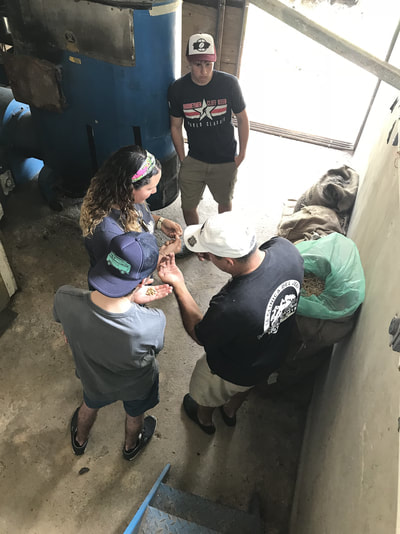
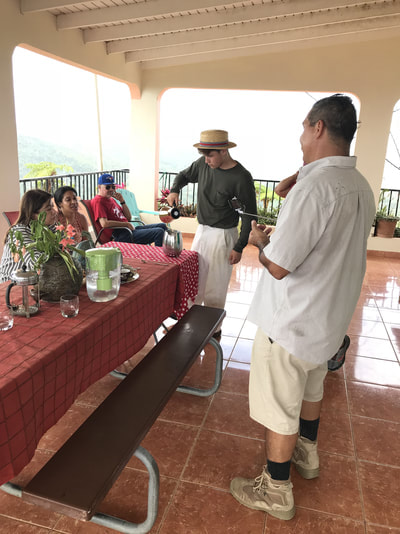
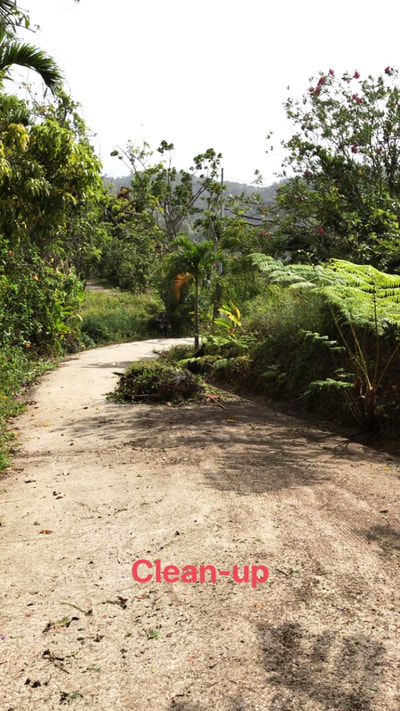
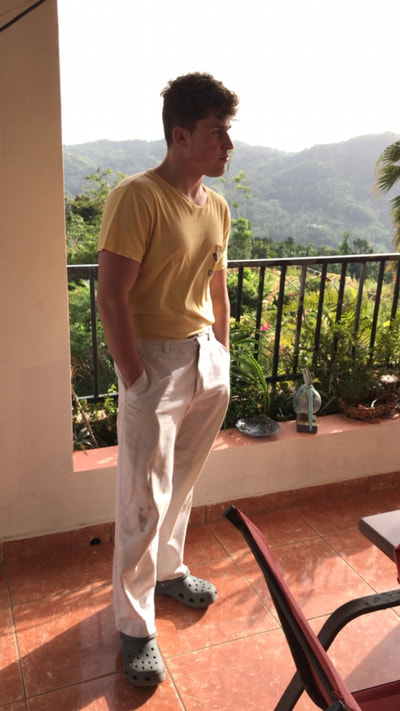
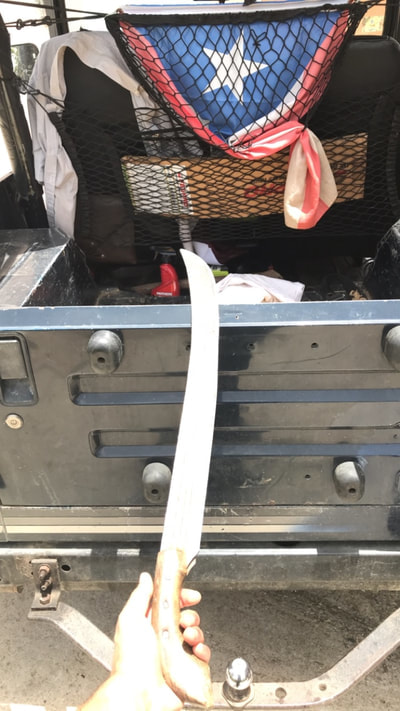







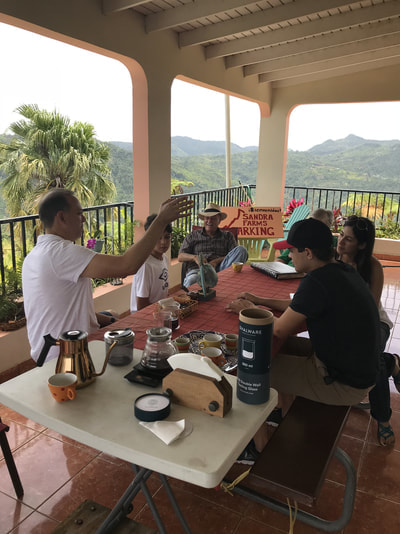
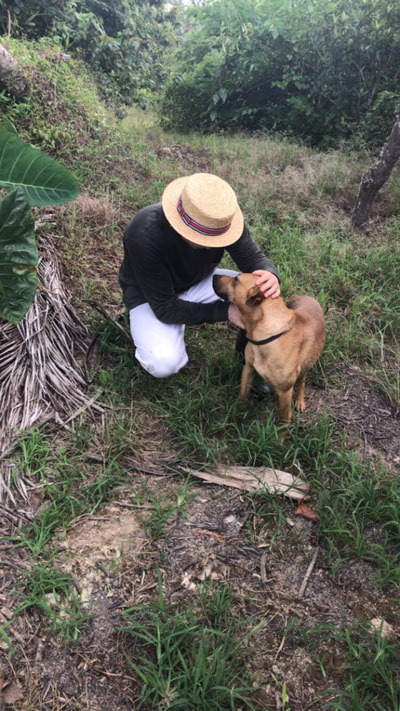
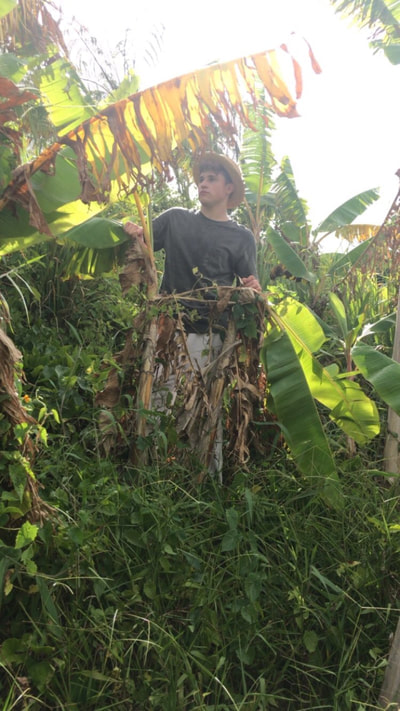
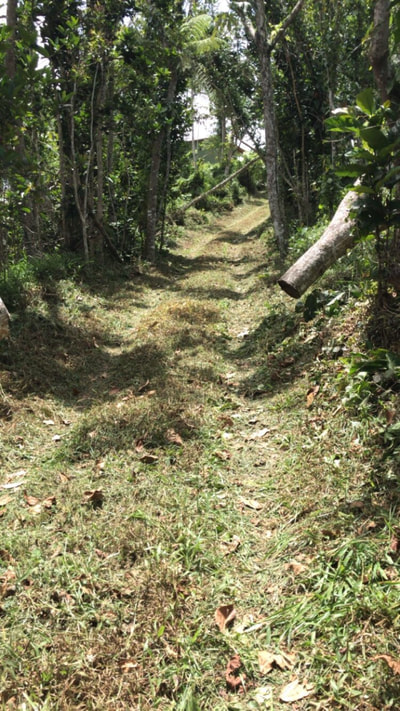
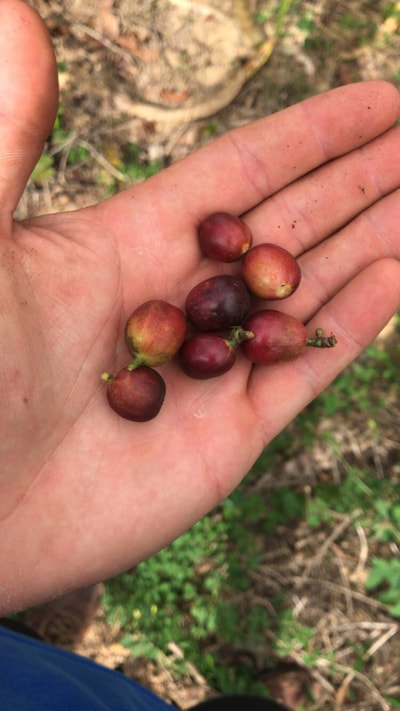




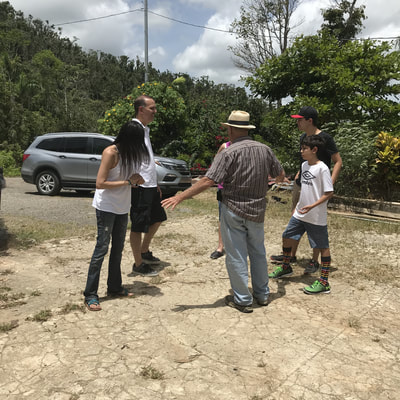
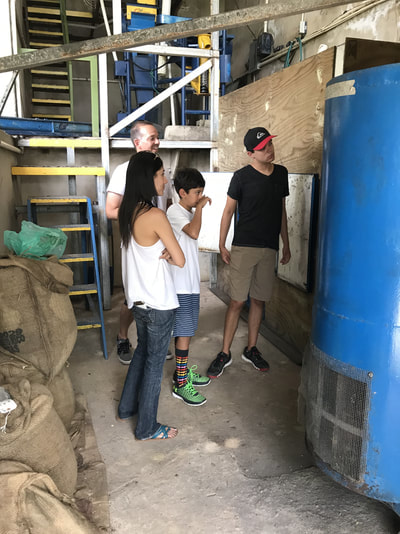
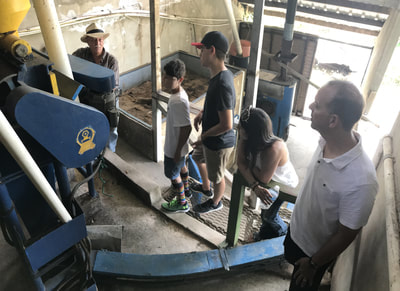
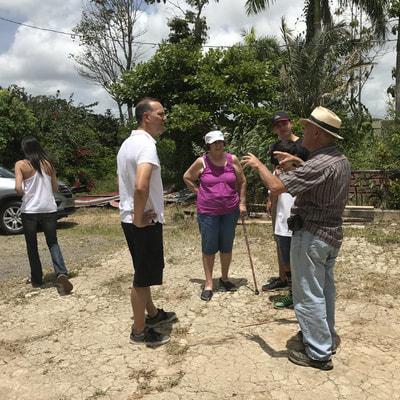









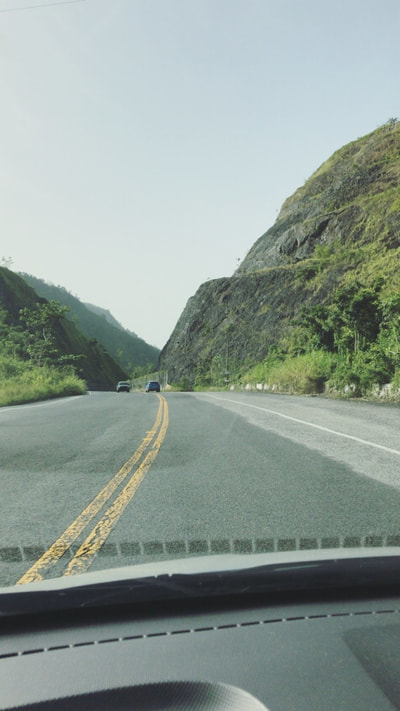









































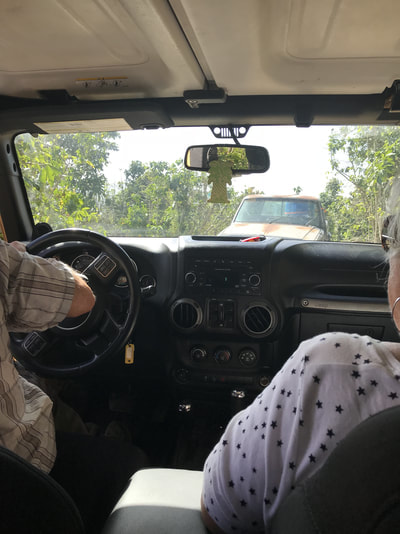









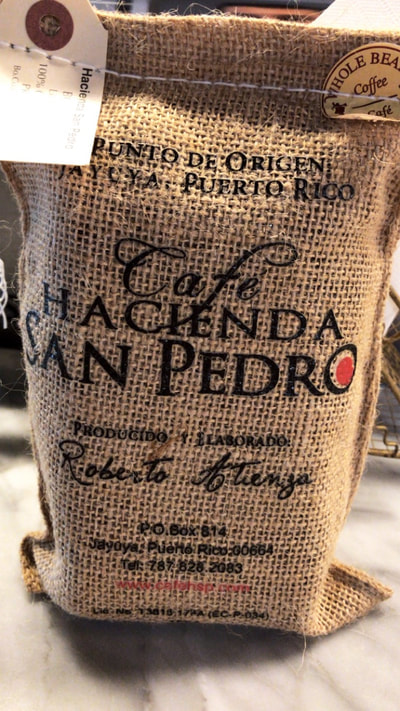
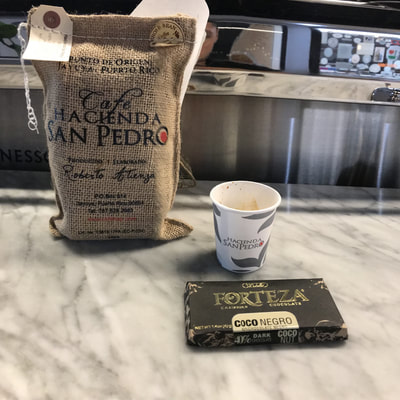
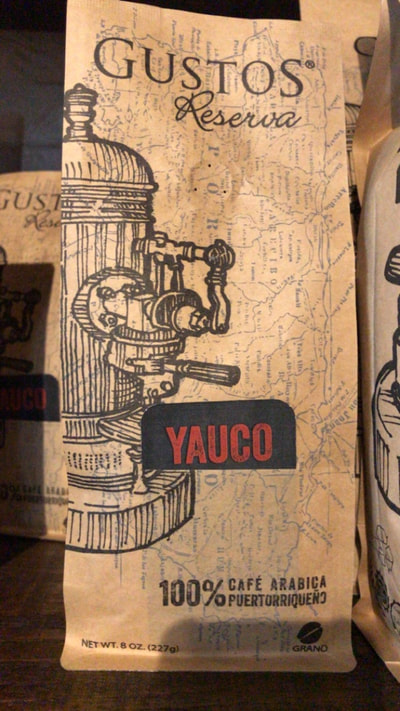

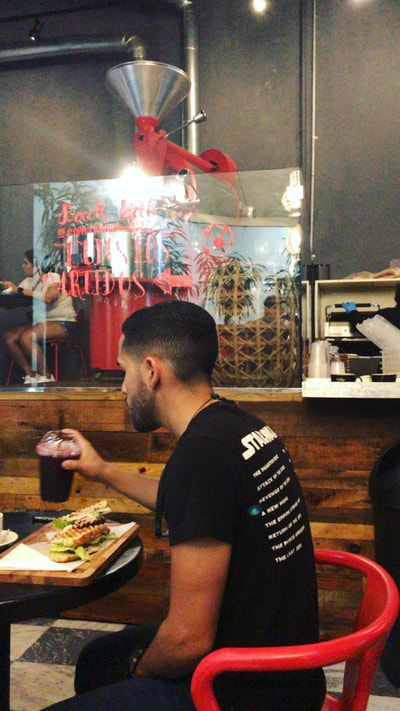
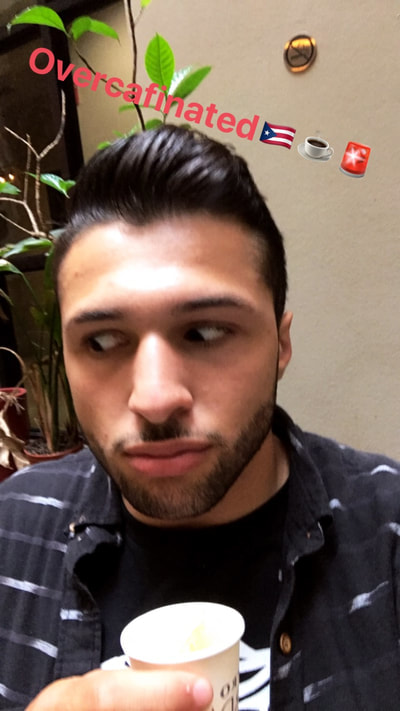
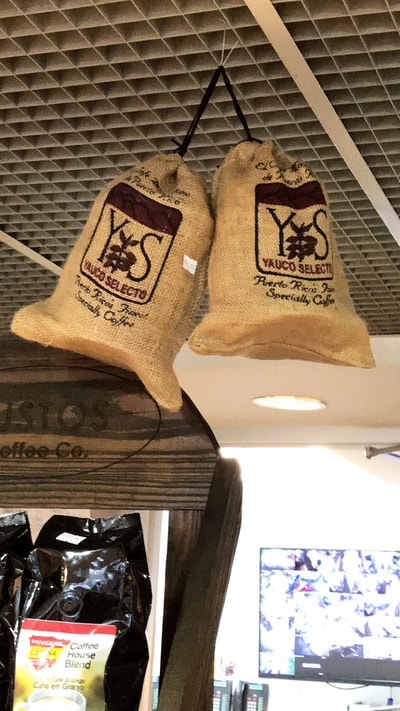
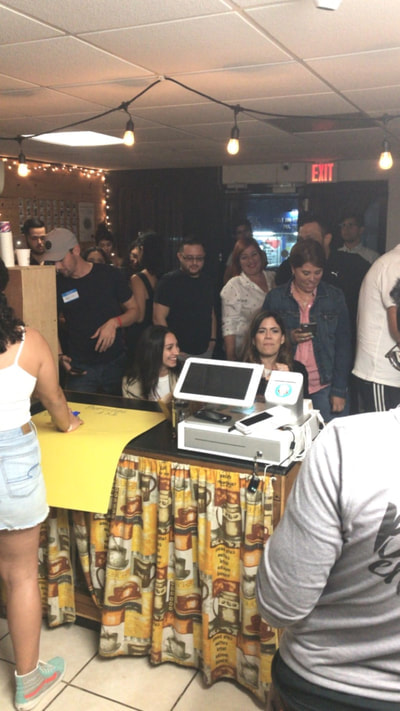
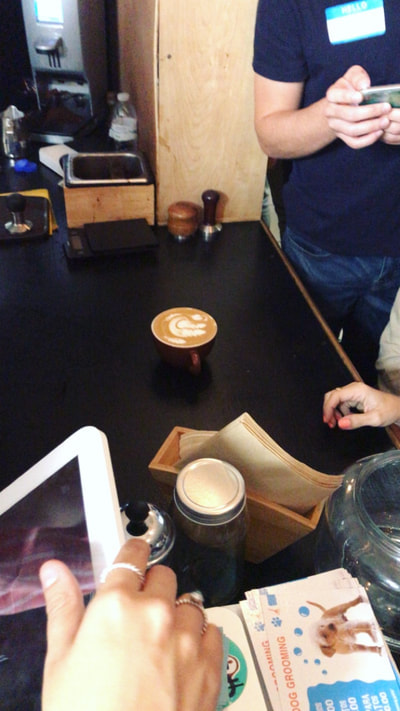
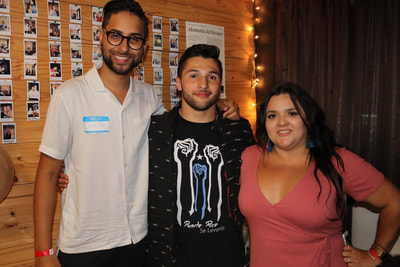
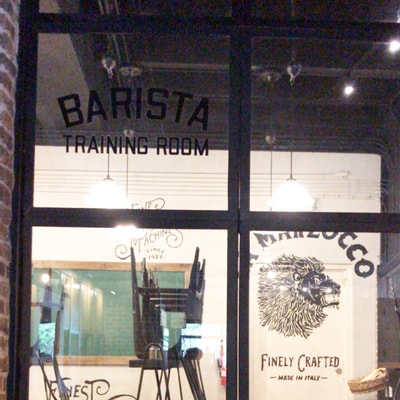
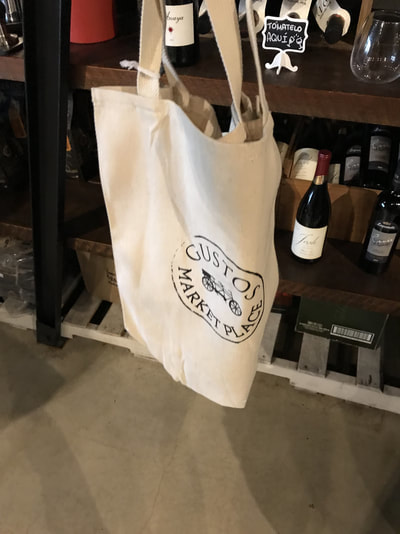
 RSS Feed
RSS Feed